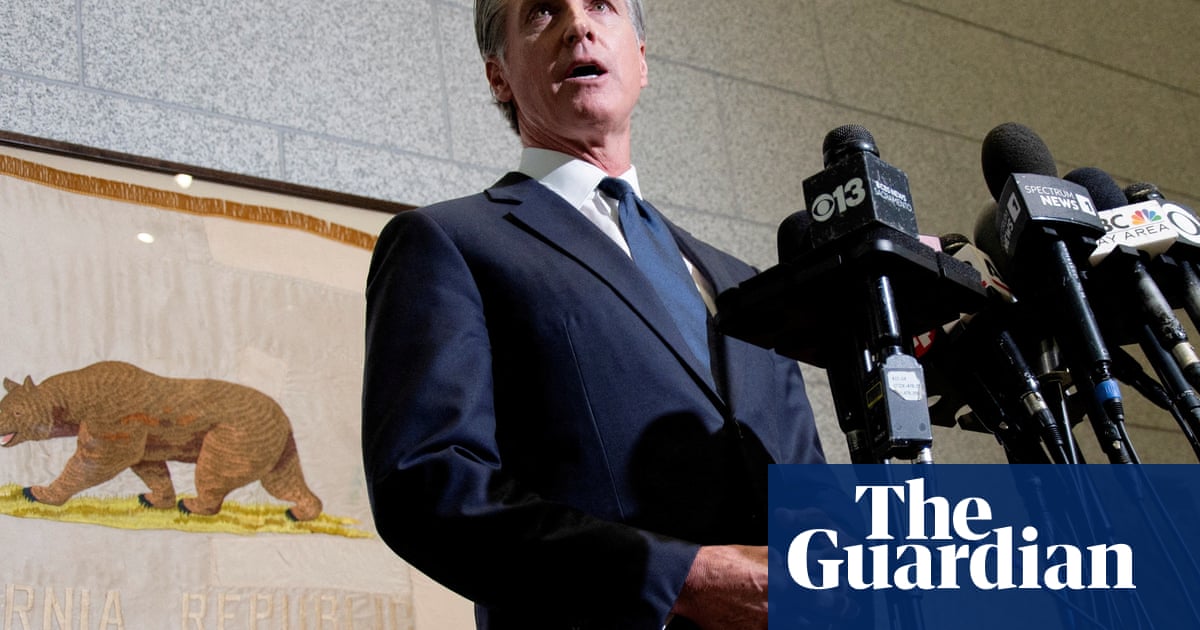TRENTON, New Jersey — New Jersey Gov. Phil Murphy on Monday night signed his final budget — and faced rare and biting criticisms from within his own administration and longtime allies.
Two members of his own Cabinet called parts of the $58.8 billion spending plan a “terrible idea” and “a great disappointment.” And over the course of Monday, unions Murphy counted among his strongest supporters came out to attack the governor — showing how vulnerable the term-limited Democrat is to criticism as he heads toward lame-duck status.
"He remains a Wall Street banker at heart and has put the interests of the insurance companies and CEO’s above the interests of everyday working people,” Steve Tully, executive director of AFSCME New Jersey Council 63 union, said in a statement related to a disagreement in cuts to health care spending for state workers. “While Governor Murphy heads to his villa in Italy this summer, tens of thousands of workers will be worrying how they are going to be able to afford the astronomical health care increases that are coming.”
Murphy and the state’s top legislative Democrats were eager to point out the spending plan includes a full $7.2 billion payment into the state’s notoriously underfunded pension fund for public workers, $12 billion in record funding for public schools and a continuation of popular property tax relief programs. And the state surplus stands at $6.7 billion — magnitudes larger than the $409 million surplus Murphy got when he came into office.
“This budget exemplifies our dedication to fiscal responsibility, affordability, and opportunity for all New Jerseyans,” Murphy said in a statement. “Over nearly eight years in office, we have maintained a steadfast commitment to building a stronger and fairer New Jersey and righting our fiscal ship. I’m proud that this budget caps off an eight-year journey to turn our state around and delivers greater economic security and opportunity to every family.”
The final spending plan had similar broad strokes to what Murphy proposed in February, with $727 million added in recent days by Democratic lawmakers. It also has a $1.5 billion structural deficit, meaning it spends more than it collects in revenue.
Last-minute additions made public late Friday drew the ire of a top Democratic lawmaker, two members of Murphy’s Cabinet and a group of public-sector unions and environmental groups that have traditionally been allied with Murphy and Democrats.
Ironically, Murphy also faced criticism from a Senate Republican for not doing enough to prepare the state for Medicaid cuts likely to be imposed by fellow Republicans in Washington.
Sen. Declan O’Scanlon, the Monmouth County Republican who serves as his party’s chief budget officer, proposed an amendment on the Senate floor Monday to cut hundreds of millions of dollars in “pork” spending and set it aside in part to deal with federal cuts Democrats have been warning about but this budget deal does not prepare New Jersey for. The proposal was rejected by legislative Democrats.
Criticism from within
It’s the criticism from within the Democratic governor’s own house and his longtime allies that is most striking and a sign of Murphy’s limited time left in Trenton.
The biggest internal criticism came from Attorney General Matt Platkin, a longtime Murphy ally, who called out plans to give hospitals money he helped win in opioid litigation.
“Last night, I learned — to my great disappointment — that the budget the Legislature is considering would deplete our hard-won opioid settlement dollars by sending $45 million to hospital systems for uses that have not been identified,” Platkin said in a statement Monday morning. “My office fought for years against companies who profited off the deaths and addiction of thousands upon thousands of New Jerseyans.”
On Sunday, acting Comptroller Kevin Walsh called out another part of the budget deal that allows state money to go to low-rated nursing homes.
“This budget provision is a terrible idea,” Walsh said in a statement. “It is a giveaway to the nursing home industry and will worsen care in nursing homes.”
The Legislature’s top lawmaker was quick to push back against the critiques from cabinet officials.
“When did they run for office? Did they run for office?” Senate President Nick Scutari — who played a key role in budget negotiations — said. “Because I didn't see that. I think that one of them is the chief law enforcement officer, and the other one is kind of more of an auditor, so I don't think that's within their purview to do.”
The nursing home industry — and Murphy — were under considerable scrutiny during the Covid-19 pandemic for poor care in nursing homes and the state’s handling of Covid-19 patients. The nursing home industry in particular has been the subject of continued scrutiny in the state and nationwide.
It’s unusual for one much less two Cabinet members to speak out. Platkin and Walsh, though both nominated by the governor, have offices with independence from the governor.
Platkin’s criticism was aimed at plans to send $45 million to Hackensack Meridian Health, RWJ Barnabas, Cooper University Health Care and Atlantic Health. The budget language says it must be in line with the opioid settlement requirements. Platkin said the budget deal “ignores” recommendations released by the state’s Opioid Recovery and Remediation Fund Advisory Council, which was created to advise how to spend the settlement funds. He also explicitly called on the Legislature and Murphy to “reject” the proposal.
The state is set to receive over $1 billion through 2038 stemming from several settlements related to the opioid crisis, with state leaders adamant that the funds be used to treat opioid addiction and not plug budget holes like the infamous tobacco settlements from decades ago.
Senate Budget and Appropriations Chair Paul Sarlo said the funds would help hospitals provide harm reduction services for opioid treatment and suggested that it would help with possible federal Medicaid cuts.
“These hospitals — they're gonna be on the front line of these Medicaid cuts,” Sarlo told reporters.
But it wasn’t just administration officials that were displeased with the newest changes. Senate Health, Human Services and Senior Citizens Chair Joe Vitale said that sending opioid settlement funds to four hospital systems was “an awful addition to the budget” that he would seek to prevent in following years. He similarly criticized the changes for nursing homes.
“It undermines the ability to make nursing homes safer in a manner that's cooperative,” said Vitale, who went on to vote for the budget. “This is an attack on public safety. And I'll do everything I can to undo it.”
The state’s long-term care ombudsperson — who was nominated by Murphy — said the budget deal on nursing homes was a “complete giveaway to the nursing home industry.”
“The rich get richer and the poor get nothing,” the ombudsperson, Laurie Facciarossa Brewer, said in a statement over the weekend. “At this point, the Legislature is throwing money at nursing home owners and stripping away the state’s own ability to ensure better quality.”
Problems left to solve
The spending plan comes amid the governor’s race to succeed Murphy and as all seats in the state Assembly are up for election this fall.
Legislative Democrats will be eager to highlight continuation of funding for popular property tax relief programs — like the ANCHOR program, which provides rebates of $1,500 to homeowners and $450 for qualifying renters, with another $250 for seniors. The budget also included $280 million for Stay NJ, the program that will cut property taxes in half for seniors making up to $500,000, and the Senior Freeze program, which also provides direct property tax relief for seniors.
But the budget is not without its potential political risks. Another last-minute addition — one of several options proposed by Murphy and agreed upon by Assembly Democrats — requires the state government workers' health program to find $100 million in savings through a committee that has labor and management representatives. The government covers most of the health care costs for employees on the state-run public worker health insurance program, which has seen rising expenses. The program — especially for local governments — is teetering on the brink of insolvency.
The $100 million cut has ruptured Murphy’s longtime relationship with public-sector unions. After the budget was passed, a group of unions representing state workers — including the CWA, Rutgers AAUP-AFT, AFSCME New Jersey Health Professionals & Allied Employees and Policemen’s Benevolent Association — blasted the measure. Tully, the AFSCME director, said Murphy is “out of touch” and Democratic Assemblymember Wayne DeAngelo, who is closely aligned with labor interests, abstained on the budget over the proposal.
In a statement, Assembly Speaker Craig Coughlin said he would hold hearings in July to discuss government worker health insurance and suggested that unanticipated revenues could subsidize increased costs.
The budget also redirects $190 million from the Board of Public Utilities’ clean energy fund to prop up NJ Transit and pad the budget surplus. Groups like Environment New Jersey and the New Jersey League of Conservation Voters criticized the decision as a gimmick and accused Democrats who are usually their allies of treating the ratepayer dollars the BPU collects like a slush fund.
The budget includes modified versions of tax increases sought by Murphy. The two major tax increases raised the tax rate for online sports and online gambling as well as the sale of real estate valued over $2 million.
The state budget could soon be upended, with state lawmakers keeping a close eye to the Congressional Republicans’ bill that could upend Medicaid or federal funding cuts from the Trump administration.
“I think what concerns people is what's going to come out of the federal government,” Scutari said. “Far as I can tell, that surplus can't make up for humongous federal budgetary cuts.”
The budget passed 26-13 in the Senate and 52-27-1 in the Assembly on Monday. Two GOP lawmakers, Assemblymember Sean Kean and Sen. Bob Singer, crossed party lines to support it.

 German (DE)
German (DE)  English (US)
English (US)  Spanish (ES)
Spanish (ES)  French (FR)
French (FR)  Hindi (IN)
Hindi (IN)  Italian (IT)
Italian (IT)  Russian (RU)
Russian (RU) 























Comments